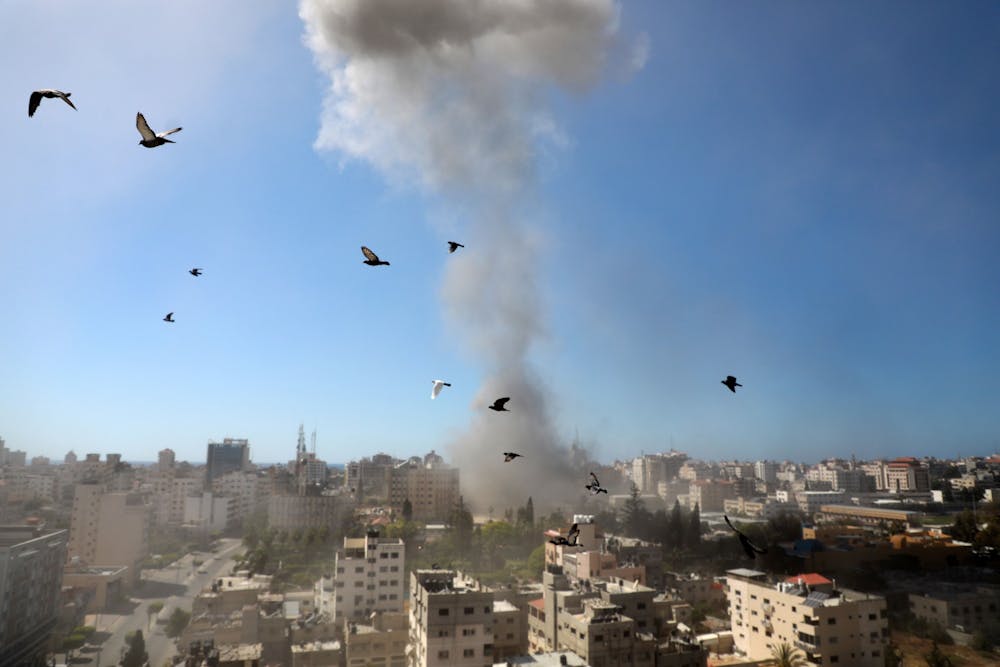Editor’s Note: This listicle is part of a series by The Ball State Daily News summarizing five stories from around the world. All summaries are based on stories published by The Associated Press.
Israeli strikes hit Gaza tunnels as diplomats work for truce
The Israeli military unleashed a wave of heavy airstrikes on the Gaza Strip early Monday, saying it destroyed 15 kilometers (9 miles) of militant tunnels and the homes of nine Hamas commanders, as international diplomats worked to end the week of fighting that has killed hundreds of people. A three-story building in Gaza City was heavily damaged with no immediate word on casualties, but residents said the military warned them 10 minutes before the strike and everyone cleared out. The war broke out last Monday, when the Hamas militant group fired long-range rockets at Jerusalem after weeks of clashes in the holy city between Palestinian protesters and Israeli police.
Glimmer of hope seen in India, but virus crisis not over yet
With over 24 million confirmed COVID-19 cases and 270,000 deaths, India’s caseload is the second highest after the U.S. But experts believe the country’s steeply rising curve may finally be flattening. In the last week, the number of new COVID-19 cases plunged by nearly 70 percent in India’s financial capital of Mumbai, home to 22 million people. After a peak of 11,000 daily cases, the city is now seeing fewer than 2,000 a day. The turnaround represents a glimmer of hope for India, still in the clutches of a devastating coronavirus surge that has raised public anger at the government.
Saudi Arabia eases travel ban for vaccinated citizens
Vaccinated Saudis will be allowed to leave the kingdom for the first time in more than a year on Monday as the country eases a ban in place since March 2020 on international travel aimed at containing the spread of the coronavirus. For the past 14 months, Saudi citizens have mostly been banned from traveling abroad out of concerns that international travel could fuel the outbreak of the virus within the country of more than 30 million people. In recent months, however, the kingdom has vaccinated close to 11.5 million residents with at least one jab of the COVID-19 vaccine, making them eligible to depart the country May 17 under the new guidelines.
UK races to test, vaccinate as virus variant threatens plans
British health workers, aided by the army, distributed coronavirus tests door-to-door May 15 in two towns in northern England, seeking to contain a fast-spreading variant that threatens plans to lift all lockdown restrictions next month. Cases of a variant first identified in India have more than doubled in a week, defying a sharp nationwide downward trend in infections won by months of restrictions and a rapid vaccination campaign. Government scientific advisers say this variant is likely more transmissible than even the U.K.’s dominant strain, though it’s unclear by how much.
China lands on Mars in major advance for its space ambitions
China landed a spacecraft on Mars for the first time on May 15, a technically challenging feat more difficult than a moon landing, in the latest step forward for its ambitious goals in space. Plans call for a rover to stay in the lander for a few days of diagnostic tests before rolling down a ramp to explore an area of Mars known as Utopia Planitia. It will join an American rover that arrived at the red planet in February. China’s first Mars landing follows its launch last month of the main section of what will be a permanent space station and a mission that brought back rocks from the moon late last year.





